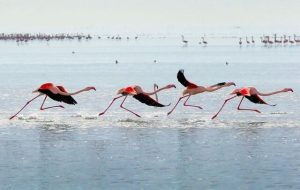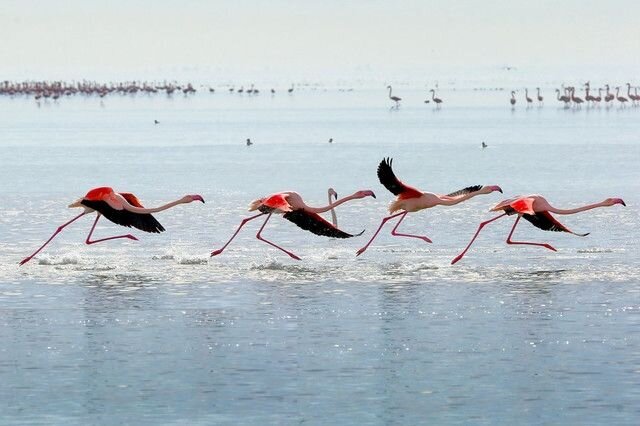DOE to draft law on managing biosphere reserves
TEHRAN –On the occasion of the International Day for Biosphere Reserves, November 3, the Department of Environment (DOE) is planning to prepare a draft law on the preservation of biosphere reserves in the country. Biosphere reserves are internationally designated natural-biological protected areas for the conservation of plants and animals, ISNA quoted Alireza Najimi, an official


TEHRAN –On the occasion of the International Day for Biosphere Reserves, November 3, the Department of Environment (DOE) is planning to prepare a draft law on the preservation of biosphere reserves in the country.
Biosphere reserves are internationally designated natural-biological protected areas for the conservation of plants and animals, ISNA quoted Alireza Najimi, an official with DOE, as saying.
A total of 13 biosphere reserves have been so far registered in 11 provinces of the country, covering a total area of six million hectares. The biosphere reserves are namely Arasbaran, Arjan, Parishan, Kavir, Turan, Miankaleh, Urmia, Kapeh-Dagh, Tang-e-Sayad and Sabz-kouh, Genu, Hara, Hamon, Golestan and Dena.
DOE is observing International Day for Biosphere Reserves through holding different programs including an educational workshop for the officials in charge of protecting biosphere reserves.
The workshop focuses on two parts, developing a management model and a legal basis.
Article 50 of the Constitution declares that the protection of the environment is a duty for everyone.
Biodiversity is one of the components of a sustainable environment. People depend on natural areas and biodiversity for survival. Public participation along with governmental organizations’ efforts play a significant role in preserving biodiversity, and the environment.
Hence, biosphere reserves’ status are internationally recognized to prevent irreversible changes and unsustainable exploitation of natural resources, he added.
Biosphere Reserves are designated under the intergovernmental man and biosphere (MAB) Program by the Director-General of UNESCO following the decisions of the MAB International Coordinating Council (MAB-ICC).
UNESCO has approved the designation of 11 new biosphere reserves in 11 countries. With these new biosphere reserves covering a total area of 37 400 km², equivalent to the size of the Netherlands, the World Network of Biosphere Reserves now totals 759 sites in 136 countries.
Each biosphere reserve promotes innovative local sustainable development solutions, protects biodiversity, and addresses climate disruption.
They also support local and Indigenous communities through practices such as agro-ecology, water management, and the generation of green income.
MT/MG
